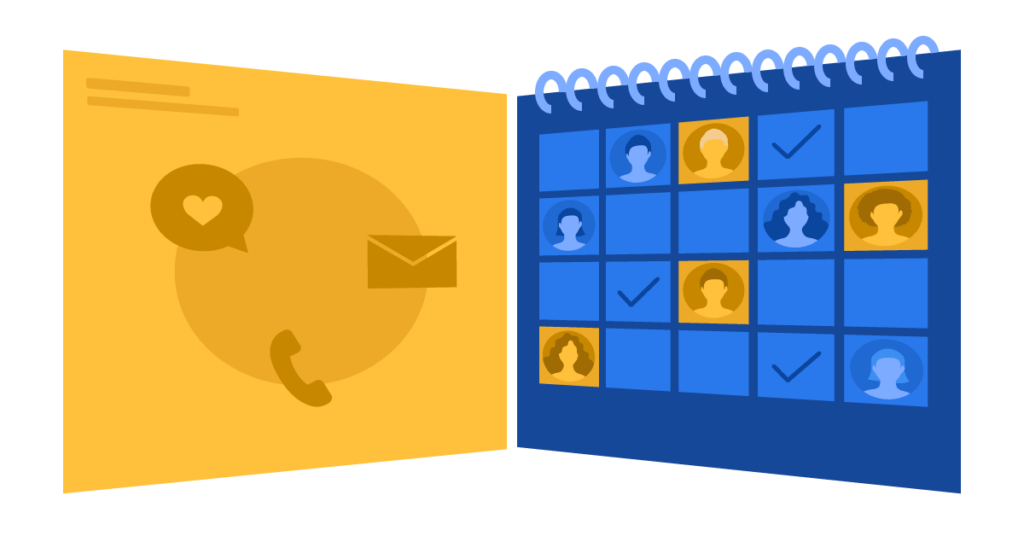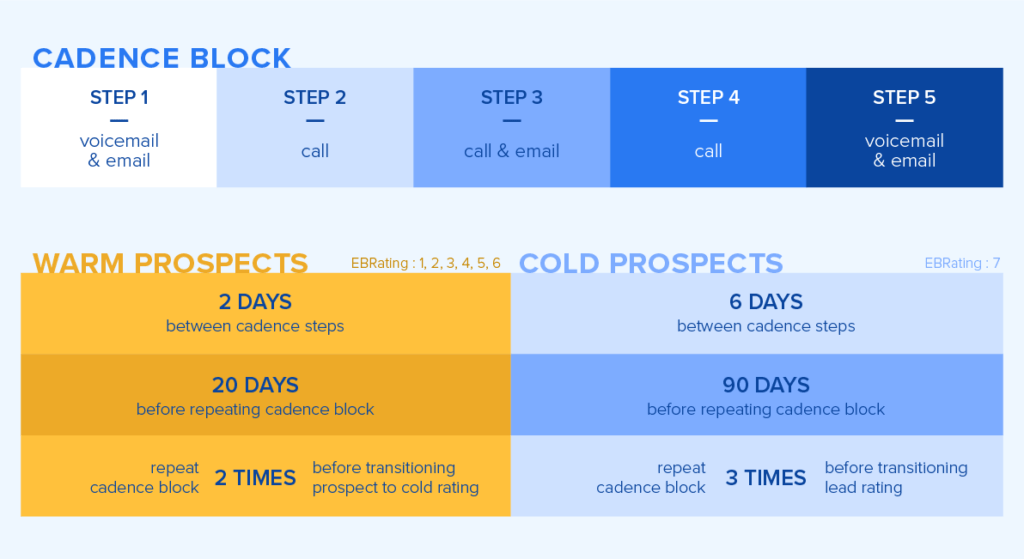Is an SDR Team Right for Your Organization?


Donte Hamilton
This post was originally published in February 2019 and has been updated for accuracy and comprehensiveness.
Today, more than 40% of salespeople consider prospecting the most challenging part of the sales process. This is because prospecting is a specialized skill that involves extensive research and proper follow-ups.
By overstressing their sales team, many businesses see a narrow sales pipeline filled with dried-up leads.
To solve this problem, many organizations invest in a team of sales development reps (SDRs). They’re primarily responsible for converting cold leads into sales-qualified leads (SQLs) by focusing on prospecting. Ultimately, their goal is to set sales appointments for your closer.
That way, salespeople can spend more time on what they do best: closing deals and deepening relationships. The question is, how do you determine whether or not you need a sales development team?
In this post, we’ll dive into the three key business characteristics that will highly benefit from a specialized SDR team, which are:
- Long sales cycle
- Complex product
- Niche target market
First, let’s explore why businesses with an extensive sales cycle can benefit from a sales development team.

Ultimate Guide to B2B Appointment Setting
Download the B2B Appointment Setting Guide to learn how to properly prospect and cold-call best practices.
Long sales cycles
If you haven’t already, take the time to familiarize yourself with a typical B2B sales cycle. That way, you’ll be able to understand what is a necessary lag between each stage and what is a symptom of sales inefficiency.
For businesses with a long sales cycle, the salespeople have to spend more time following up on leads to keep your brand top-of-mind.
If your salespeople are also prospecting, you will inevitably prolong your sales cycle since they have significantly less time to close deals.
But before we look at how an SDR team can reduce your sales cycle, let’s dive into three of the most common reasons that lead to an extended sales cycle:
- Multiple decision makers
- High selling price
- Salespeople cold calling
Multiple decision makers
From my experience, B2B organizations have longer sales cycles than B2C businesses. That’s because your sales team needs to win over more decision makers to convert an account.
With more decision makers comes the need for a more in-depth exchange of information and a higher number of touches before the opportunity is closed.
To win prospects over, salespeople are responsible for demonstrating value and helping the contact get the rest of their team on board. This lengthens the time needed to convert these prospects.
An SDR team can significantly shorten the cycle because they only send qualified leads to the closer. This ensures your salespeople don’t waste too much time navigating the organizational obstacles of prospects who are not likely to buy.
High selling price
For companies that sell high-priced solutions, a longer discovery and nurture process is necessary to help prospects close. For example, SaaS companies benefit greatly from SDRs that qualify leads in advance.
Because business leaders are always about the bottom line, it will inevitably take more time for them to mull over your solution before finally agreeing to invest in you. In fact, studies show that most companies deny an offer four times before agreeing to a partnership.
By utilizing an SDR team, your organization will be able to streamline prospect touch cadence. This means your salespeople will have more availability to answer any of your prospects’ questions promptly — thus setting a better impression on prospects.
The result? An even higher probability of closing deals.
Salespeople cold calling
Studies show that the average salesperson only spends 36.6% of their time selling. By adding prospecting to their job function, your sales team will be wasting valuable time reaching out to many contacts who are unqualified and others who simply won’t answer.
An SDR team solves this problem by prospecting and dialing through your database, sending sales reps only qualified leads who have agreed to a sales meeting.
Here are a few of our top reasons why SDRs should do your prospecting and cold calling instead of your salespeople:
- Salespeople focus on pitching your product and answering common objections
- SDRs are tasked to have a salesperson agree to a sales meeting, which is less intimidating than agreeing to invest in your solution
- Salespeople are incentivized by the commission, so they often move on from leads too quickly
- SDRs are solely focused on top-of-funnel, so they can maintain a persistent touch cadence with prospects
As mentioned above, freeing up your salespeople time allows them to deepen your relationship with high-quality prospects. They’re now able to schedule in-depth demos, answer questions promptly, and even meet with your decision makers more frequently.

Subscribe to EBQ's Bimonthly Newsletter

Subscribe to EBQ's Bimonthly Newsletter
Complex Product
For companies selling complex products, you’ll need to be even more thoughtful in audience segmentation to boost conversion rates.
Some examples of such complex products include solutions that have:
- Robust features
- Numerous out-of-the-box features
- A wide assortment of customization options
Here’s my rule of thumb: The more complex your offering, the more precisely you should tailor the brand messaging. If you’re not careful, your team can suffer from misaligned sales and marketing teams.
Misaligned Teams
To drum up interest for a product, your sales, marketing, and even customer service teams have to be on the same page with your brand messaging.
When a product is more complex, keeping the target audience and value proposition on the same page becomes more challenging.
Here are a few symptoms to look for to determine if your Sales and marketing teams are misaligned:
- There’s no established feedback loop between marketing and sales
- Salespeople don’t utilize marketing collateral effectively
- Sales qualifies and converts marketing-generated leads at a low rate
When your teams are not in sync, the teams typically blame each other. Marketing blames sales for poor conversion rates, and sales blames marketing for poor lead quality.
If you see misalignment between your teams, SDRs present a unique way to bridge the gap between sales and marketing. An SDR team helps mitigate these issues by warming up marketing-qualified leads before passing them to sales and notating in detail why certain leads won’t convert.
This helps marketing adjust their inbound strategy to attract more relevant leads and helps sales gain a better understanding of who buys their solution and why. Both teams get a full view of prospects’ complete buyer’s journey instead of just the parts they play a role in.
By creating synchronized sales and marketing teams, your business will benefit from:
Higher rate of deals won
Improvement in retention
Faster revenue growth
Niche Target Market
If you have done an effective job developing your ideal buyer persona, it will help you focus more on relevant prospects. Knowing the exact type of person who has an interest and need for your solution gives you an idea of their decision drivers.
Do they expect to speak one-on-one with your reps before making their decision, or do they expect a more automated digital experience?
If your customers routinely purchase solutions like yours without ever speaking to a salesperson, don’t force them through a tedious qualification and nurturing process with an SDR.
However, if your customers require a higher degree of familiarity with your product and brand before purchasing, then a multi-touch SDR strategy is much more likely to work in your favor.
Here’s a look at an example SDR call cadence from our very own playbook:

For many B2B companies, relationship building is an integral part of the sales process. But building a business relationship doesn’t typically happen on the first call; it happens over time across multiple interactions. That’s why I recommend approaching prospects with an account-based selling strategy — which I’ll dive into further later in the post.
B2B clients want to know the ins and outs of the product, review the company’s track record, and feel valued as a business partner before investing in a solution.
While SDRs don’t typically address the relationship aspects beyond qualification, they do enable sales to focus on building relationships with prospects who are worth their time.
Account-based selling
B2B companies with niche target markets find success using an account-based sales approach, which targets specific accounts discovered through manual prospecting and research.
The account-based approach involves targeting high-value accounts — typically enterprise companies — instead of individual contacts.
An SDR team helps with this approach because these specialized reps take over the lengthy prospecting process for sales and perform the necessary discovery and call cadence needed to qualify these accounts.
If your SDR team is struggling to find the right targets, consider choosing a better B2B data vendor. With the right vendor, you’ll be able to find more high-quality prospects and verify their contact information.
Invest in a Business Development Team Today
While every business benefits from investing in a team of SDRs, I recommend B2B companies take the time to start developing their own sales development team now.
Businesses with a high-selling price, complex product features, or a niche target market generally require a longer nurturing process to reach a decision. SDRs help accelerate the decision process by qualifying prospects early on and entering into sales conversations sooner.
With the right team of SDRs, you’ll be able to reach new heights with your sales pipeline. Not only can you shorten your overall sales process, you can even boost your ROI in the end. Interested in partnering with EBQ? Be sure to fill out a contact form, and one of our Business Consultants will reach back out to you.
